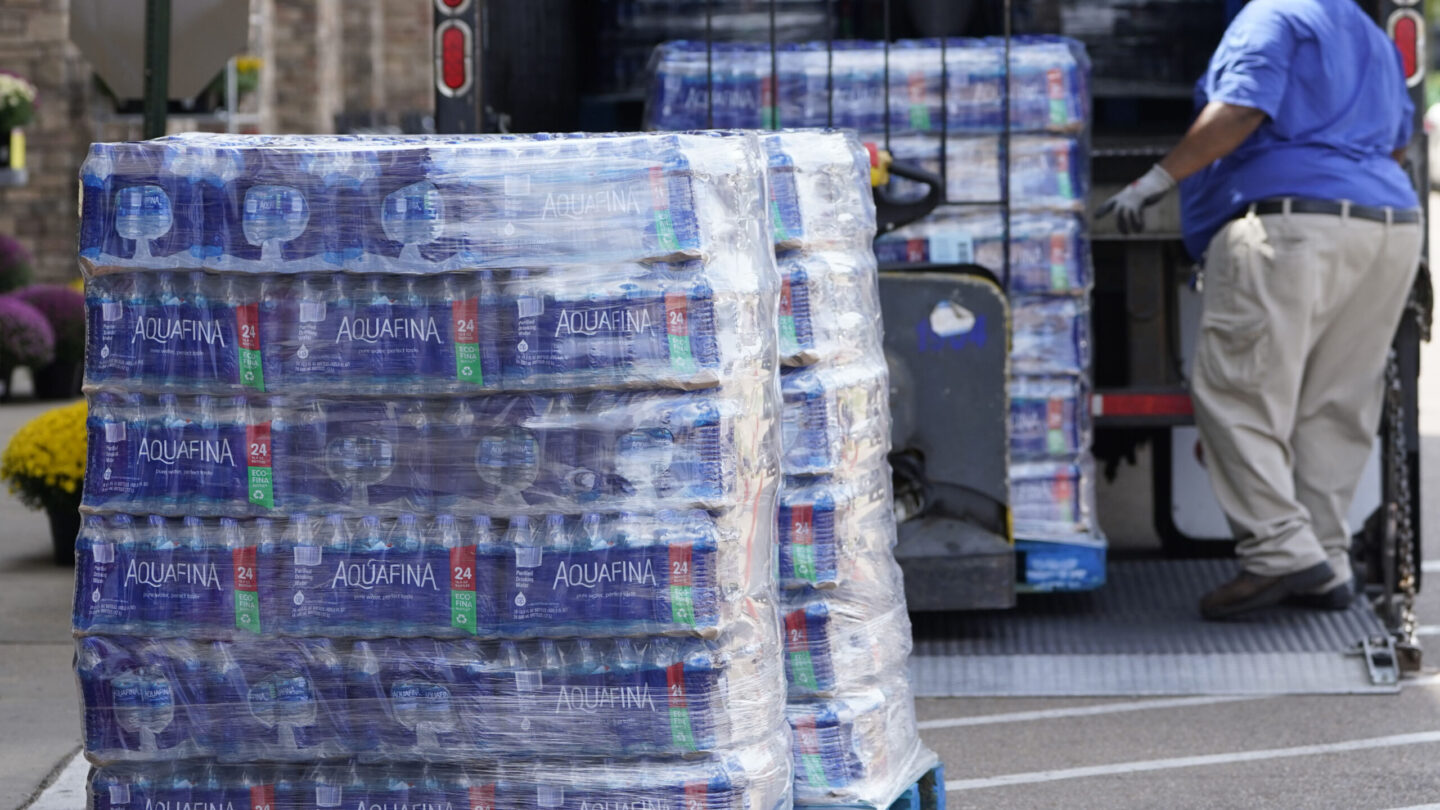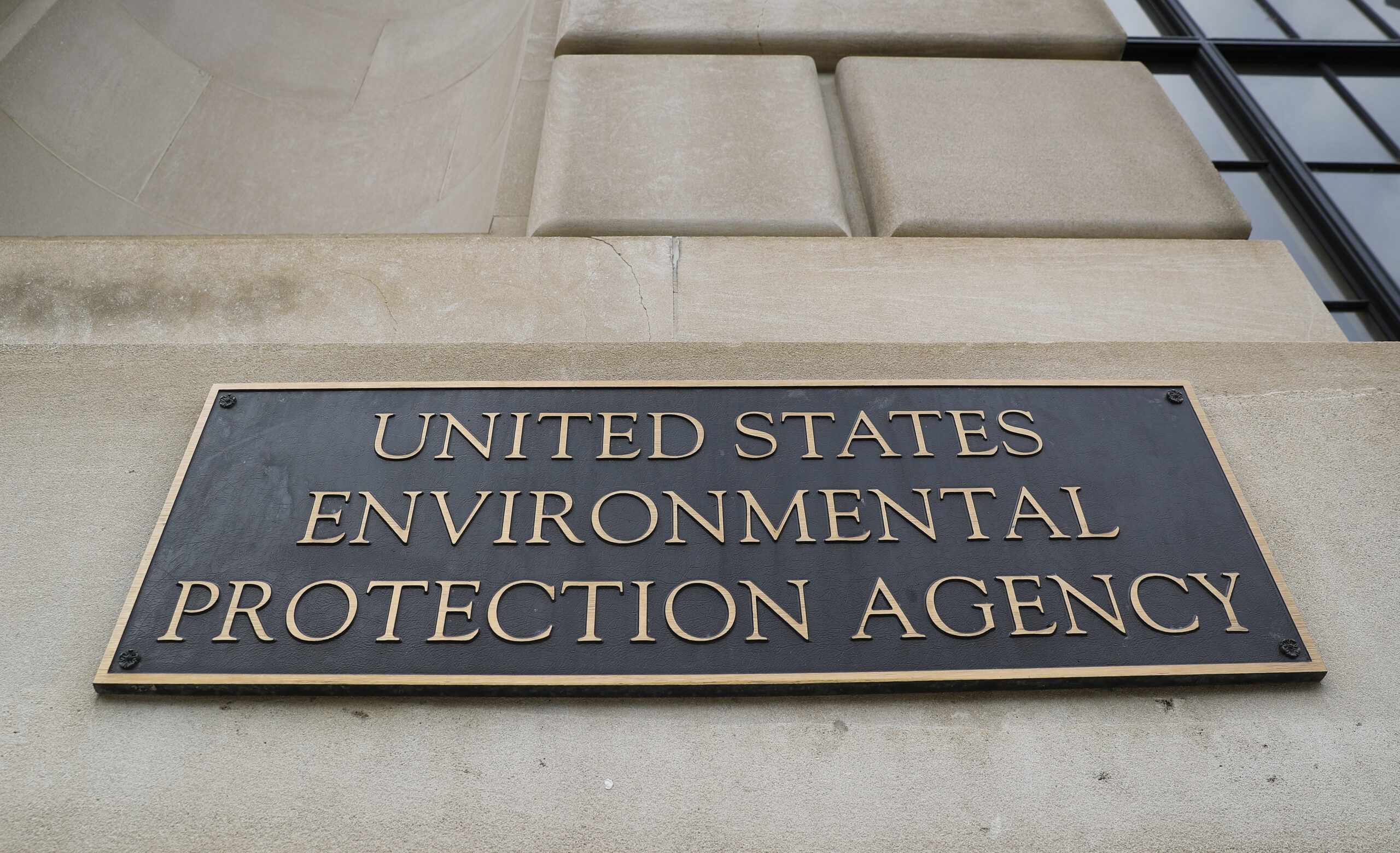The city of Jackson was already struggling with a deteriorating water system long before the latest rains cut off access to safe drinking water for more than 150,000 people in Mississippi’s capital.
For years, residents of the majority-Black city have endured everything from service disruptions and recurring boil-water advisories to concerns over contaminants like lead and E. coli bacteria, thanks to failures to upgrade Jackson’s aging infrastructure.
With the city now under a state of emergency, officials are scrambling to distribute bottled water to tens of thousands of people in a city where roughly 1 in 4 people live in poverty. Amid the fledgling response, officials have sent mixed signals about how long it may take to restore service. City officials have said it could be “days,” but Gov. Tate Reeves has said it is unclear exactly how long it will take.
The current crisis began last week, when days of torrential rain caused the Pearl River, which runs through Jackson, to swell and then crest around 35 feet high, according to the National Weather Service. In an emergency order issued Monday, Jackson Mayor Chokwe Antar Lumumba said the flooding “created problems with treating water” at the city’s primary water-treatment facility, the O.B. Curtis Water Plant.
Yet even before last week’s rains, concerns over Jackson’s water system were well-documented, and the city was already under a state-issued boil water notice in the month leading up to the flooding.
“It was a near certainty that Jackson would begin to fail to produce running water sometime in the next several weeks or months if something didn’t materially improve,” Reeves told reporters this week.
“Until it is fixed, it means we do not have reliable running water at scale,” Reeves said. “It means the city cannot produce enough water to fight fires, to reliably flush toilets, and to meet other critical needs.”
A similar crisis played out last year
Across Jackson, the situation is an unwelcome replay of the winter of 2021, when bruising storms blanketed the state in ice and nearly decimated the city’s water system. Pipes and water mains burst throughout the city, leaving tens of thousands without water — some for as long as three weeks.
The crisis came at a moment when the city was continuing to confront widespread worries about the safety of its drinking water. In 2020, the Environmental Protection Agency issued an emergency order warning that the water system in Jackson posed “an imminent and substantial endangerment” to residents and could contain dangerous contaminants such as E. coli. Four years earlier, state health officials alerted the city about elevated levels of lead in its drinking water.
At the root of the challenges in Jackson are decades of underinvestment in a sprawling water system made up of roughly 1,500 miles of water mains, some of which are over 100 years old. In 2013, the city sought to overhaul the system through a $90 million contract with Siemens to upgrade sewer lines, water-treatment plants and to install a new water-sewer billing system for residents.
But the deal brought myriad new issues for the city, including the installation of faulty water meters that measured water use in gallons instead of cubic feet. In the years following the installation, some residents received exorbitant bills for months of water use at a time, while others weren’t billed at all. At one point, city officials advised residents to simply pay what they thought they owed, but unpaid bills would eventually strain Jackson’s ability to address the system. The city ultimately sued Siemens and several local subcontractors for $450 billion in damages, reaching an $89.8 million settlement in 2020.
Fixing the system could cost billions
The city has also been unable to fully chip away at its service backlog, in part because a shrinking population has left it with a tax base that is roughly 20% smaller today than it was in 1980.
At the same time, it has struggled to secure state infrastructure funding. Last year, at least two bills aimed at helping raise money for water-system repairs died in the legislature. And in June 2020, Reeves, a Republican, vetoed bipartisan legislation designed to help residents with overdue water bills which, in turn, would have enabled the city to collect sorely needed water revenue.
In vetoing the bill, the governor acknowledged that residents “got overcharged in the past,” but said the legislation would allow “politicians to say that individuals are not responsible for paying their water bill.” Reeves also said there were “no safeguards in place” to ensure aid would go only to “the impoverished or needy.”
Mayor Lumumba has estimated that modernizing the city’s infrastructure could cost as much as $2 billion. Mississippi received $75 million from the federal infrastructure bill signed by President Biden last year for water and sewage needs, but that money is for the entire state, not Jackson alone.
Copyright 2022 NPR. To see more, visit https://www.npr.org.
9(MDAxODM0MDY4MDEyMTY4NDA3MzI3YjkzMw004))

9(MDAxODM0MDY4MDEyMTY4NDA3MzI3YjkzMw004))








